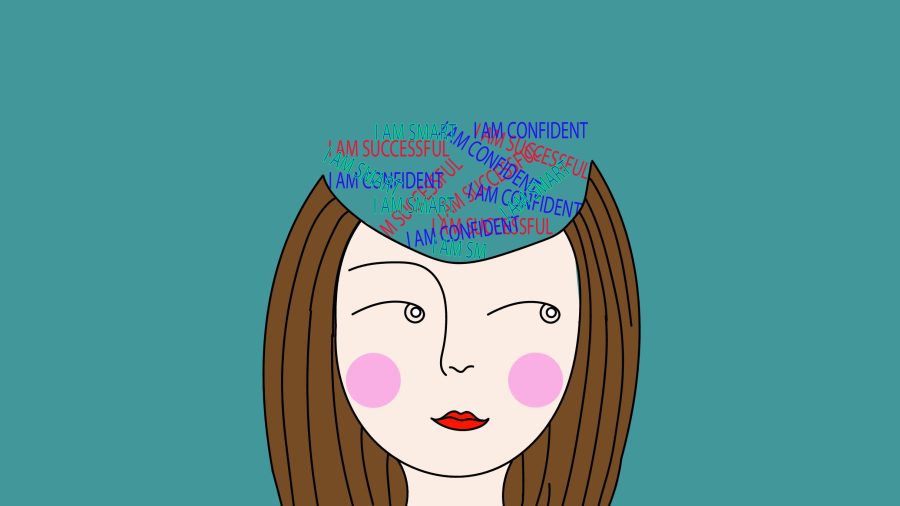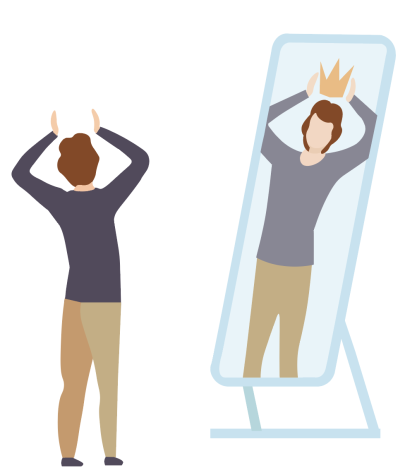Positivity Pays
Is it magic or science? Daily affirmations are said to be used to combat negative thoughts and feelings, but do they really offer a kind of healing magic?
My power is unlimited. All my actions are aimed at achieving my goals. I am achieving one goal after the other. I believe in myself. All of these are common mantras that claim to bring positivity and enlightenment into people’s lives. But do these affirmations really work and, if so, how?
I tried out these affirmations to see whether these magical chants helped change how I felt throughout the day. I repeated affirmations to myself every day over the course of one week and tracked how I felt. I focused on things in my life that I wanted to change. Using affirmations such as “Good things are coming my way,” “I can achieve all my goals” and “I can work hard,” I truly felt as if my day went by easier. I felt less stressed the closer I got to the end of the week.
From a personal standpoint, I truly believe that positive daily affirmations can help relieve stress. I was able to feel more confident in myself and relaxed throughout the week, compared to the average stressful school week, in which I would feel exhausted and pressured. While everyone has a different way of handling life’s obstacles, and it may not work for everyone, giving daily affirmations a try is certainly worthwhile.
Positive affirmations are not just a lifestyle, they can also be used more casually as a practice when trying to achieve the goal of relieving stress and negative feelings. With the rise in popularity of these mantras, many have begun to question whether affirmations are rooted in something more scientific than what the media says.
A psychological theory behind affirmations supports this inquiry. Created in the late 1980s by Claude Steele the Self-Affirmation Theory states that self-affirmations can help restore self-confidence by having the individual reflect upon their self-worth and core values, according to The National Library of Medicine.
“I think reflecting on oneself can be beneficial because it allows you to learn about valuing yourself,” sophomore Francesca Lara said.
Additionally, neuroplasticity is your brain’s ability to change and adapt to different situations in your life. Therefore, visualizing your affirmation is helpful, because it can trick your brain into believing that this is reality. Furthermore, visualizing an affirmation makes it more comfortable to keep that affirmation in your mind, according to Forbes Magazine.
However, sometimes your brain can confuse reality with imagination. Creating a mental image of an affirmation can activate the same parts of the brain that would be functional while experiencing that scenario, according to Crystal Raypole, an author with Healthline Media. Affirmations can also help avoid self-sabotaging thoughts that may otherwise interfere with your situation.
“It’s very common nowadays for people to say self-deprecating humor and think they are funny, but it can lead to that person believing them,” junior Chrisondri Marks said.
More times than not, people also associate affirmations with the idea of achieving perfection. However, affirmations are not meant to be used in that way. This can begin a never-ending cycle of perfectionism, which can end in guilt or depression, according to Psychology Today.
“So, the idea of perfection, accepting who you are, accepting what you’ve done, including accepting faults that you might have or mistakes that you might make, is an important part of that reflection process,” psychology teacher Scott Nelson said.
Writing an affirmation for yourself does not have to be hard. Think about things in your life that you want to change, make sure your affirmation is achievable, write the phrase in the present tense and say it with intention,and you may just change your reality.
Your donation will support the student journalists of Coral Gables Senior High School. Your contribution will help us cover our annual website hosting costs.















